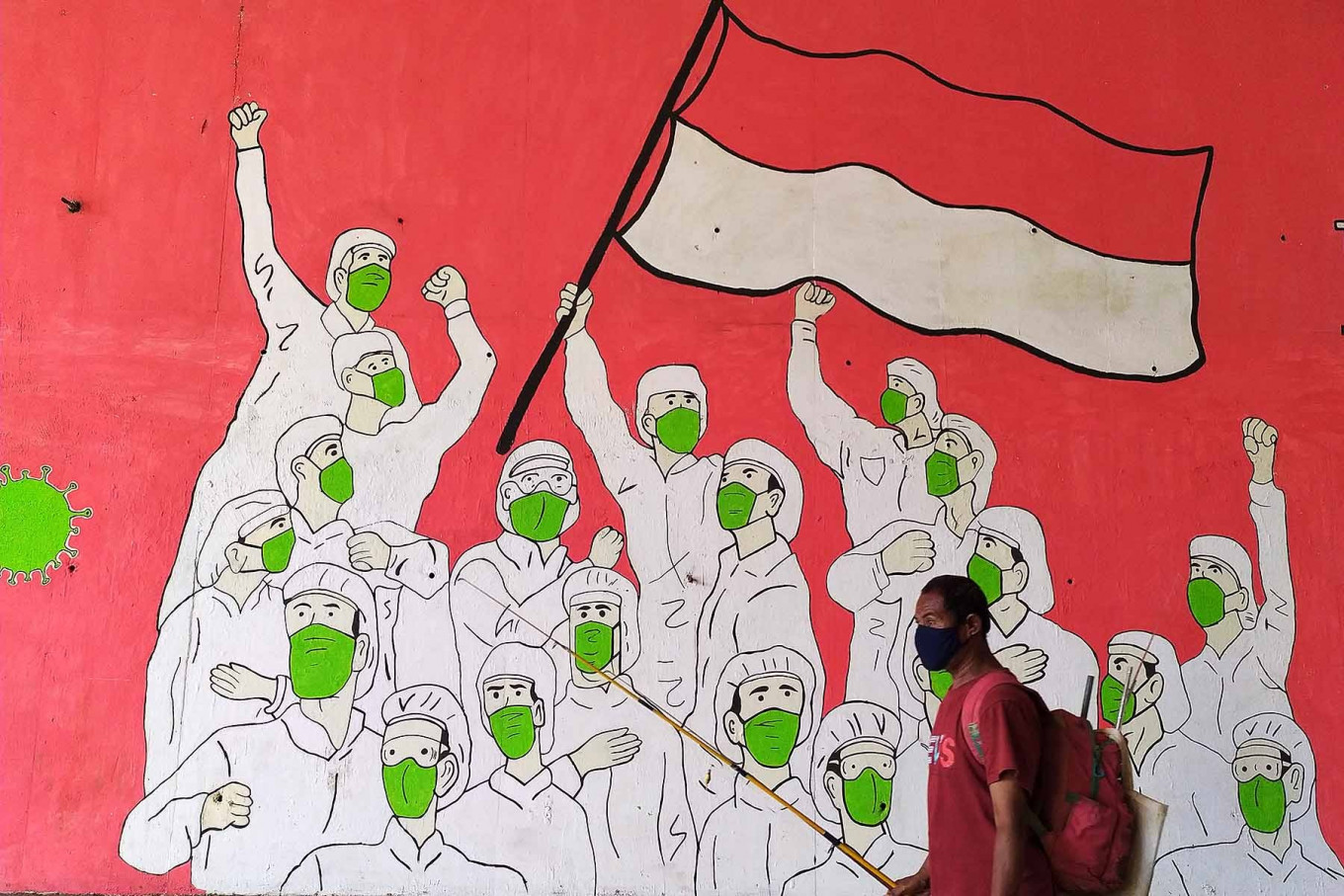Popular Reads
Top Results
Can't find what you're looking for?
View all search resultsPopular Reads
Top Results
Can't find what you're looking for?
View all search resultsIDI split and the need to reform Indonesia's medical sector
The newly established PDSI indicates a need to reform the country's medical system.
Change text size
Gift Premium Articles
to Anyone
T
he establishment of the All-Indonesia Doctors’ Association (PDSI), apparently as a splinter group of the government-sanctioned Indonesian Medical Association (IDI), has sparked heated debate. The PDSI was formed following the dismissal of former health minister Terawan Agus Putranto from IDI for ethical misconduct.
However, the split could be a blessing in disguise, as it opens up an opportunity for long-awaited reforms in the country’s health service and education, things that, at least to date, the IDI has yet to deliver.
On the one hand, we have to admit that the IDI’s bold action against Terawan is deserving of praise. Medical ethics not only maintains a doctor’s professional integrity, but also protects the public from irresponsible medical practices that a doctor may knowingly or unknowingly conduct.
On the other hand, we have to acknowledge that the IDI, as a professional organization, is very susceptible to abuse of power. Unfortunately, many IDI members are not aware of this.
In terms of its authority, not only does the IDI regulate how doctors practice medicine, but it is also involved in medical education, even though it is not an educational organization. More importantly, IDI membership is mandatory for all Indonesian doctors. Therefore, it regulates almost every aspect of Indonesian doctors’ activities related to medical services and education.
In this regard, the IDI is a superpower institution, so it plays a greater role than the Health Ministry as the highest governing body in the health sector when it comes to regulating clinical practices. For example, a doctor needs the IDI’s recommendation in order to obtain a medical license and fulfill their mandatory medical residency.
Moreover, the IDI conducts, regulates, accredits and approves continuing medical education (P2KB), which is required of doctors for relicensing.
Another long-disputed issue concerning the IDI as a medical association is that it is not properly audited by public accountants, despite the fact that the organization collects monthly fees from its members. Hence, most members are clueless about how the money is being used.
It is hard to believe that a big organization like the IDI, with its overarching regulatory power, is free from oversight by an independent supervisory board, nor is it regularly audited by external public accountants.
We can compare the IDI with the British Medical Association (BMA) and learn from how the BMA works, including its scope of authority and regulatory powers.
BMA membership is not mandatory for doctors practicing in the United Kingdom. It does not regulate individual medical practices, nor does it register or certify doctors in the UK. These authorities, along with medical education quality assurance, are held by the General Medical Council, the UK counterpart of the Indonesian Medical Council (KKI).
Hence, doctors in the UK can still practice independently without BMA affiliation. The BMA also does not have a regulatory role in a doctor’s career or bid for a medical residency.
However, BMA membership can offer some benefits, such as employment and ethical, financial and legal advice. Therefore, the BMA’s primary role is to represent doctors, either individually or collectively, in negotiating, lobbying and advocating doctors’ rights (including pay) at both the local or national level.
Hence, the BMA exists mainly to represent and provide support and assistance for all UK doctors in order to influence the government in making informed decisions.
One example was in 2019, when the BMA won a judicial review that overturned the regulations that allowed the Secretary of State for Health and Social Care to suspend the pension benefits payment of doctors charged with a criminal offense, but not yet convicted. Last year, the BMA launched a campaign to provide support for general practitioners (GPs), including encouraging increased government investment in GPs.
Reflecting on how the BMA can influence the UK government, we expect the IDI to play a greater role in addressing essential but overlooked issues. One important issue is improving doctors’ welfare. There has been increasing concern that many Indonesian doctors are severely underpaid. The IDI has issued a recommendation on doctors’ minimum salary, but we haven’t seen how it has influenced the government policy on this issue.
Another issue that deserves mention is the medical residency system. It has long been known that a medical residency requires doctors to pay tuition and admission fees while they are unpaid during their residencies. Hence, those who come from well-off families have a greater chance at becoming a specialist doctor.
Unfortunately, the IDI has not done enough to address this matter, let alone initiating radical breakthroughs to reform this anomalous system.
Interestingly, in Terawan’s case, many people, including several government officials, called for the dissolution of the IDI. To a certain degree, this reflects a deficit of public trust in the IDI. Hence, notwithstanding the Terawan turmoil, the IDI needs to work to reform the medical system, including medical education.
Meanwhile, the PDSI has pledged to deliver on long-overdue reforms, though it remains to be seen whether it can fulfill its promise.
Otherwise, we will only see two similar organizations with different names in a dualism that engenders prolonged conflict rather than medical reforms.
***
The writer is a medical doctor pursuing a master degree at the Institute of Cardiovascular Science, University College London, under a scholarship from Indonesia’s Education Endowment Fund (LPDP).










